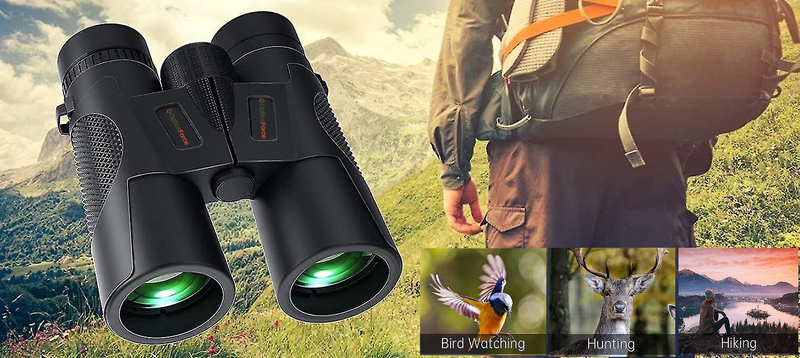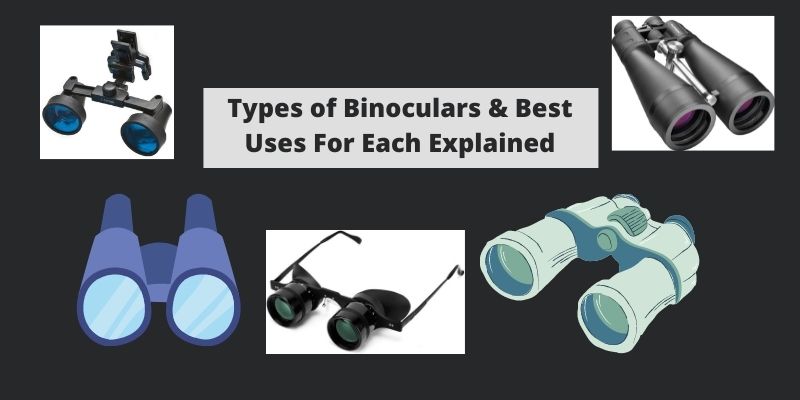The Significance of Binoculars in Education and Scientific Research: Exactly How These Optical Instruments Contribute to Learning and Expedition
The combination of binoculars into academic settings and scientific study is commonly neglected, yet their contribution to boosting empirical skills is substantial. These instruments link the gap in between theoretical principles and practical application, enabling students and researchers alike to involve with their atmospheres in a substantial way. In techniques ranging from ecological science to astronomy, binoculars offer as vital devices that promote query and critical thinking. The broader ramifications of these optical gadgets on discovering end results and clinical expedition warrant even more examination, especially as we consider their prospective in shaping future scientific undertakings.
Enhancing Observational Abilities
In educational and research settings, making use of field glasses significantly enhances empirical abilities among students and specialists alike. These optical instruments facilitate a much deeper understanding of remote topics, allowing individuals to observe information that would otherwise remain unseen. By using field glasses, learners can analyze wildlife, huge phenomena, and geological developments, cultivating a much more profound connection to the subject issue.
Field glasses function as crucial devices in area research studies, motivating students to involve proactively with their atmosphere. Via boosted observation, they can gather information better, resulting in improved logical skills. This hands-on experience permits the advancement of important thinking, as pupils need to interpret what they see and connect it to theoretical knowledge.

Bridging Theory and Practice
Observational skills created via making use of binoculars naturally cause an extra extensive integration of theoretical expertise with practical application. By engaging in direct monitoring, students can change abstract principles right into substantial experiences. This synergy promotes a deeper understanding of scientific principles as trainees attach academic structures with real-world phenomena.
For instance, when examining avian biology, pupils can use their understanding of bird composition and habits through the lens of field glasses, observing qualities such as plumage variation, feeding routines, and migratory patterns. This direct interaction not only strengthens academic ideas yet additionally cultivates crucial thinking and analytical abilities.
Moreover, the use of binoculars encourages students to create theories based on their observations, therefore improving their scientific inquiry skills. They can proactively examine these theories in the field, leading to an extra experiential understanding setting that promotes curiosity and expedition.
Essentially, field glasses function as an important device in bridging the void between class discovering and fieldwork - Binoculars. They empower trainees to become energetic participants in their education, urging an alternative approach to recognizing the natural globe and its complexities. Therefore, the integration of concept and method is essential for cultivating Home Page informed and involved learners
Applications in Environmental Scientific Research
Utilizing field glasses in ecological scientific research improves the ability to observe and assess communities with better accuracy. These optical instruments are crucial for carrying out field researches, enabling scientists to check wildlife populations, analyze plant health, and examine habitat problems without disturbing the natural setting. Field glasses help with the recognition of varieties at various distances, allowing scientists to gather important information on biodiversity and behavior.
In ecological research study, field glasses are crucial devices for ornithologists researching bird habits and migration patterns. They make it possible for researchers to tape observations over long durations, adding to valuable longitudinal researches - Binoculars. In addition, binoculars play an essential duty in habitat assessments, as they permit the comprehensive monitoring of plant communities and their communications within ecosystems
Environmental teachers additionally take advantage of binoculars, as these tools enhance experiential knowing possibilities. Pupils can engage directly with their environments, promoting a deeper recognition for ecological systems. By integrating binoculars into academic programs, instructors can motivate the following generation of ecological scientists.
Function in Astronomy Education
The use of binoculars in astronomy education and learning gives an easily accessible entrance for students and enthusiasts to explore celestial phenomena (Binoculars). Unlike big telescopes, binoculars are portable, easy to use, and fairly low-cost, making them an excellent introductory device for observing the evening skies. Students can quickly involve with the cosmos, fostering a hands-on understanding experience that boosts their understanding of expensive concepts
Binoculars permit more tips here users to observe a selection of holy items, including the Moon, planets, and star clusters. Notably, binoculars serve as a bridge to a lot more intricate huge instruments, supplying foundational experiences that can stimulate much deeper passion in the area.
In educational settings, led binocular sessions can advertise team cooperation and conversation, boosting the discovering experience. The shared experience of observing celestial bodies can grow a feeling of area among students. Overall, binoculars play a critical duty in demystifying astronomy, making it friendly and engaging for people at all degrees of education.

Inspiring Inquisitiveness and Query
Field glasses not just help with the monitoring of celestial sensations however also ignite a sense of curiosity and query amongst pupils. By supplying a better take a look at remote things, field glasses encourage students to ask inquiries and discover the setting around them. This tool changes easy discovering into an energetic, engaging experience, cultivating a much deeper understanding of clinical ideas.
When trainees utilize binoculars to observe wildlife, landscapes, or expensive items, they develop observational skills that are vital for clinical query. The act of concentrating on particular information prompts them to create theories, carry out investigations, and reason based on their observations. This process not just boosts their important believing abilities but likewise supports a lifelong passion for expedition.
Moreover, binoculars can connect the void in between theoretical knowledge and real-world application. Inevitably, the use of field glasses in instructional settings offers as a catalyst for interest, empowering trainees to go after expertise with excitement and promoting a sense of marvel concerning the world around them.
Conclusion
In summary, binoculars work as essential tools in education and scientific research, significantly boosting observational skills while connecting the void between academic understanding and sensible application. Their varied applications in areas such as environmental science from this source and astronomy emphasize their relevance in cultivating inquisitiveness and inquiry among students. By helping with thorough examinations of distant subjects, field glasses not only inspire the next generation of researchers yet likewise grow an extensive admiration for exploration and the scientific approach.
Comments on “Checking Out Various Sorts Of Binoculars for Exterior Journeys”